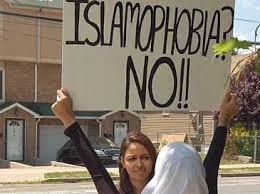Answer
Salam (Peace) Dear Lyn,
Thank you for your question and for contacting Ask About Islam.
First of all, I request you to evaluate Islam on the basis of its own sources: namely the Quran and the Sunnah (i.e the teachings and example of Prophet Muhammad, peace be upon him).Thank you for your question and for contacting Ask About Islam.
Secondly, please recognize the fact that the verses of the Quran should be interpreted with reference to the context in which those verses were revealed, and not arbitrarily according to one’s bias.
You know, quotes out of context can be twisted to yield a meaning never intended by the author. You may be familiar with a number of “Islam experts” who appear regularly on TV channels that cater to popular tastes, and pontificate on a religion they relish to malign. They misquote the Quran, misinterpret its verses and twist its meaning to serve their agenda.
You have accused Islam of being “the lowest moral system humanity has developed”! But consider the basic principles on which Islam’s moral system is established, just to see whether Islam’s moral system is altogether so bad. (I have avoided the religious language you may have objection to):
- The universe is one; nature is one; and humanity is one: all humans are equal before law; but the weak should be given special consideration as regards rights.
- Justice and Balance are two key principles deducible from the order of the universe and all its components; and any attempt to violate these would create turmoil in the whole system.
- Man (including woman) is endowed with all his special faculties and the freedom of choice. He has to use his gifts with a sense of responsibility for his own welfare as well as for all those beings around him.
- Man has an inherent goodness in him; he should avoid all that tempts him away from that goodness. He should be vigilant to avoid everything that creates disturbance in the family, in the society or in the natural world at large.
- Man has to face the consequences of his actions: one who does good ought to get the reward for it; and one who does evil should pay the penalty for it; and no one should bear the burden of someone else’s crimes.
Though an atheist, you may notice that some of the so-called “progressive” or “western” religions do not approve of most of these sensible principles, as they go counter to their own skewed beliefs.
Now let us come to the question of God:
My first contention is that it is your onus to prove that there is no God; that the universe came into existence on its own. However, this is not to evade my burden namely to offer my own reasons for believing in the existence of God.
The best evidence for the existence of God is our own existence, rather the existence of the universe.
If we believe that the universe exists, we must accept basically one of the three positions:
- That the universe was created, or
- That it was not created, but it has existed on its own from the “beginning”, or
- That it was neither created, nor has it existed from the beginning, but it came into being on its own in a process of evolution.
If we believe 1, that the universe was created, then the question “Who created it?” arises. The answer is obviously God.
If we believe 2, that the universe has existed on its own from “the beginning”, then we have to accept in principle the idea of the existence of anyone on their own from “the beginning”. So we cannot rule out the existence of God from “the beginning”.
If we believe 3, that the universe is the result of a process of evolution, then we must presume that this evolution was a random one and that there was no plan or purpose behind this evolution, that is, if we want to deny the existence of God.
Or we can hold the view that the process of evolution was not random and it had a plan behind it. And if the universe came into existence and runs according to a plan, the question arises how that plan could come into being without a planner. The point is simply that a plan does not exist without a planner. And presumably the Planner of this wonderful universe is God.
The Universe Is a Cosmos and Not a Chaos
If we open our eyes and observe carefully the phenomena of nature, we see a regularity and order in all things; for instance, in the rising and the setting of the sun, the waxing and the waning of the moon, the change of seasons, etc.
We see the same regularity in the birth, growth and decay of plants and animals. In short we can very clearly observe that everything in nature follows an order/pattern.
As indicated above, the unerring order and pattern in nature leads us to the grand design of the universe. We cannot imagine this is mere coincidence. We recognize the fact that ours is a universe of order: that it is a cosmos and not a chaos.
Unless there is a reliable order, or a predictability and stability (instead of randomness) of laws governing the working of the Universe, how can scientists do experiments and discover what they call Laws of Nature or Laws of Science?
The foregoing consideration naturally points to the Unity of the Power behind the universe too.
You have cited verse 4:56 of the Quran mentioning the punishment awaiting those who reject Divine Guidance, calling it “barbaric and shameful”. But the Quran also speaks of the Garden of Paradise filled with wonderful opportunities for a life of eternal happiness offered to those who accept Divine Guidance.
The question is one of a moral choice between the two, between good and evil. And we humans are free to make that choice. As beings gifted with reason and freedom of will, we ought not to make the wrong choice and land in trouble.
Of course God could have created us as beings destined for hell, which would certainly be sadistic and hideous. Or He could just have forced us to do only good, so that we directly go to Paradise to enjoy all the blessings forever. But then, He would be depriving us of the freedom of choice.
And He did not do so. He created humans as rational moral beings, with freewill. And He offers us immense opportunities for moral and spiritual development too.
Your argument basically means that this is bad, as you would prefer a life without any kind of responsibility. Apparently you would like humans to be mere animals or at best robots rather than reasonable beings with freedom of choice.
You have said that it is religion that creates “tendencies for tribalism, hatred, viewing people of various worldviews as bad”. Islam is a religion that fights tribalism and racism and has gone a long way in removing from the minds of people a tendency for viewing one group of people as superior to others. This is one of the reasons for its success in Asia and Africa.
When Christianity had turned itself into a hand maiden of western colonialism, it was Islam that helped the black, the brown and the yellow multitudes of those two continents to rise as humans possessing equal dignity with the white “foreigners”. Today the neo-colonialists of the west try to turn the tables on their “erstwhile subjects” and charge them with imposing their “less refined” culture on others!
What are the standards you use to judge the culture of the other? You have admitted that it is “arrogant for a culture to presume that it has perfect and final metaphysical truth that it must share with the rest of the world…”
I am afraid that you yourself are guilty of an ethnocentrism that prevents you from viewing the value of a different culture. Or else, on what standards do you judge the Islamic culture as “less refined”? By the same token, you hate to travel to some of the Muslim countries of the world.
To us it only betrays your xenophobia rather than a healthy respect for a different culture. You try to “take the speck out of your brother’s eye, when all the time there is a plank in your own eye!” (Matthew 7:4)
Indeed every culture in the world or ideology for that matter may have such a presumption – that its own truth is perfect or at any rate superior. And the proponents of each strive to propagate its truth to the rest of the world.
That is how the religions of the world as well as ideologies like Marxism and laissez-faire capitalism spread over a large part of the world.
Islam, considered as a religious ideology rose above the tribalism of the Arabs and to a great extent over their traditional culture too. It was to the credit of Islam that from the beginning it addressed the whole of mankind. God in the Quran (as Muslims believe) speaks to humanity at large, and invites them to accept it as their way of life:
{O mankind! We created you from a single (pair) of a male and a female, and made you into nations and tribes, that ye may know each other (not that ye may despise (each other). Verily the most honored of you in the sight of Allah is (he who is) the most righteous of you. And Allah has full knowledge and is well acquainted (with all things).} (Quran 49:13)
And,
{O mankind! verily there hath come to you a convincing proof from your Lord: For We have sent unto you a light (that is) manifest.} (Quran 4:174)
And it is also worth noting that no coercion is permitted in the spread of the message of Islam:
{Let there be no compulsion in religion: Truth stands out clear from Error: whoever rejects evil and believes in Allah hath grasped the most trustworthy hand-hold, that never breaks. And Allah hears and knows all things.} (Quran 2: 256)
Islam does not permit its adherents to use any kind of force on others to embrace it. As in the case of other religions and ideologies, its proponents too have some time in history adopted what they thought expedient, instead of following the strict injunctions, it is true. But those violations cannot be attributed to Islam as such, but only to the human tendency to “catch the nearest way”.
Your supposition that the depravity called “homosexuality” is natural is outrageous, not only for the followers of Islam, but also for the Christians of the west as well. Homosexuality may be fashionable in your western culture. But that does not mean that the whole human race should stop considering it a perversion, and adopt it as normal.
And speaking of women in positions of authority – you are wrong about Muslim countries. You know that so far no woman had the good fortune to hold the highest office in the U.S. But consider these Muslim countries: Indonesia, Pakistan, Bangladesh, Turkey, Senegal and Kosovo.
In all these countries women have held the highest office. And when did women get the right to inherit their parents’ property in the “modern” west? And when did they get voting rights?
As for covering heads and wearing decent dress – why don’t you see anything amiss with thousands of Catholic nuns – who wear Islamic dress – serving the people in different parts of the world?
If the covering of the female body in a proper dress suggests subjugation from your point of view, what about nudity or semi-nudity openly practiced in the west?
Is it a sign of decency or promiscuity aimed at appealing to the lascivious tastes of men as well as of deliberately playing into the hands of “male chauvinists”?
I hope this helps answer your question.
Salam and please keep in touch.
